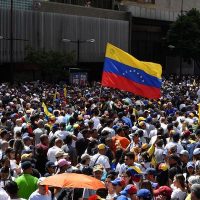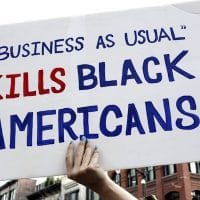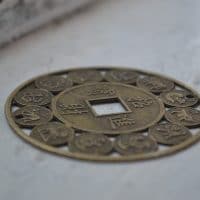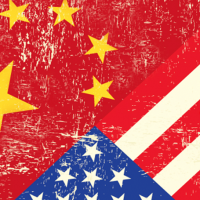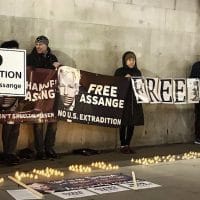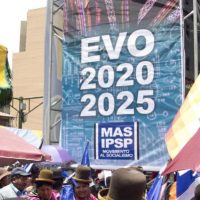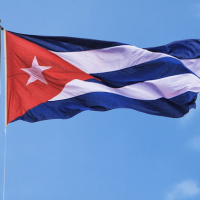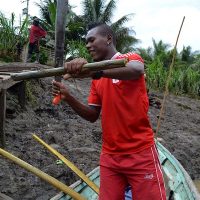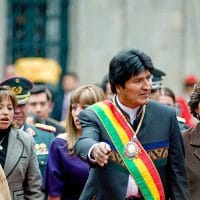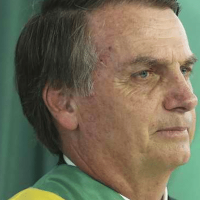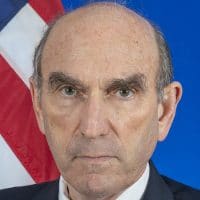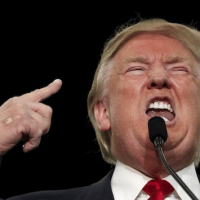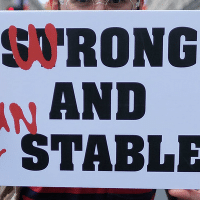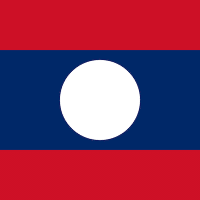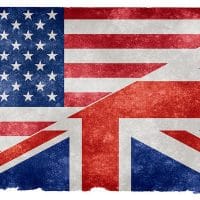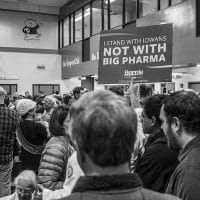-
How Venezuela has held back COVID-19 in spite of the U.S. sanctions stranglehold on its economy
A seam of cruelty runs through U.S. policy, which by its sanctions regime prevents Venezuela from open trade of its oil to import key medical equipment to help break the chain of the virus and heal those infected by it.
-
Policing the poor and minorities as counter-insurgency
Here are seven counterinsurgency features of policing and the inequities in the criminal justice system.
-
Argentina’s veteran ambassador makes a stand for the sovereignty of Latin America
Alicia Castro does not shy away from her views. She came to diplomacy from the trade union movement, where she was a leader when she was a flight attendant with Aerolíneas Argentinas.
-
Venezuela’s ability to fight COVID-19 is badly hamstrung by the 31 metric tons of gold stolen from its treasury
On October 5, 2020, the England and Wales Court of Appeal overturned a lower court decision from July that denied the Venezuelan government access to 31 metric tons of its gold stored in the Bank of London.
-
Why America’s economic war on China is failing
U.S. President Donald Trump—supported by most of the U.S. establishment—deepened the U.S. government’s assault on the Chinese economy.
-
The difference between the U.S. and China’s response to COVID-19 is staggering
In Washington Post reporter Bob Woodward’s new book, Rage, he reports on interviews he did in February and March with U.S. President Donald Trump about the coronavirus.
-
The U.S. is determined to make Julian Assange pay for exposing the cruelty of its war on Iraq
On September 7, 2020, Julian Assange will leave his cell in Belmarsh Prison in London and attend a hearing that will determine his fate.
-
Why U.S. political scientists are arguing that Evo Morales should be the President of Bolivia
Three political scientists from the United States closely studied allegations of fraud in the Bolivian election of 2019 and found that there was no fraud. These scholars—from the University of Pennsylvania and Tulane University—looked at raw evidence from the Bolivian election authorities that had been handed over to the New York Times.
-
Why Cuban doctors deserve the Nobel Peace Prize
U.S. allies in Latin America, such as Brazil, Bolivia, and Ecuador, expelled the Cuban medical missions. This would become a catastrophic decision for these countries as the COVID-19 pandemic developed across Latin America.
-
The tragic assassination of Colombia’s sports hero Patrón, lover of football and his Afro-Colombian community
Patrón lived in Chocó in northwestern Colombia, where 96 percent of the people identify as Afro-Colombian or as part of the Emberá Indigenous community. Chocó is treated as a backwater of the country, with no real infrastructure in the province’s expanse and little social policy to enhance the lives of its population.
-
Will there ever be elections again in Bolivia?
On November 10, 2019, President Evo Morales Ayma of Bolivia announced his resignation from the presidency. Morales had been elected in 2014 to a third presidential term, which should have lasted until January 2020.
-
Why a growing force in Brazil is charging that President Jair Bolsonaro has committed crimes against humanity
Jhuliana Rodrigues works as a nurse technician at the Hospital São Vicente in Jundiaí, Brazil. “It is very difficult,” she says of her job these days. Brazil has just passed 100,000 deaths from COVID-19, with 3 million Brazilians infected with the virus.
-
How the U.S. failed at its foreign policy toward Venezuela
On August 4, 2020, the U.S. Senate Foreign Relations Committee held a hearing on Venezuela. Appearing before the committee was U.S. State Department Special Representative Elliott Abrams.
-
How Trump managed to lead the World with the worst response to COVID-19 pandemic
Six months ago, on January 30, the director-general of the World Health Organization (WHO), Dr. Tedros Adhanom Ghebreyesus, announced a public health emergency of international concern (PHEIC). Ten days before this, the Chinese government had said—to great alarm—that the coronavirus could be transmitted from human to human.
-
‘We will coup whoever we want’: Elon Musk and the overthrow of democracy in Bolivia
Protests across Bolivia began on July 27 for the restoration of democracy.
-
Time is not on our side in Libya
Haftar, who was once an intimate of the United States’ Central Intelligence Agency (CIA), is now prosecuting a seemingly endless and brutal war against the United Nation’s recognized Government of National Accord (GNA) based in Tripoli and led by President Fayez al-Sarraj.
-
Why government mostly helps people who need it the least—even during a crisis
The system is the problem.
-
Laos has tackled COVID-19, but it is drowning in debt to international finance
On June 11, Laos (Lao People’s Democratic Republic)—a country of 7 million in Southeast Asia—said it had temporarily prevailed over COVID-19.
-
The U.S. and UK are a wrecking ball crew against the pillars of internationalism
In both the case of the sanctions against the ICC and the theft of Venezuela’s gold, the United States and the UK demonstrate their disregard for international institutions and for international law.
-
The world can show how Pharma monopolies aren’t the only way to fight COVID-19
The U.S. has bought up almost all of the stock of remdesivir from Gilead, making it nearly impossible for this COVID-19 drug to be available anywhere else in the world.

